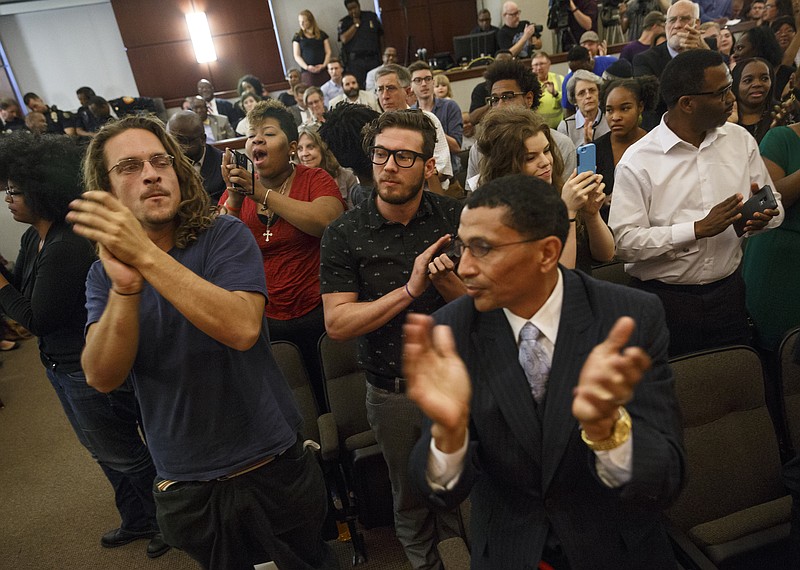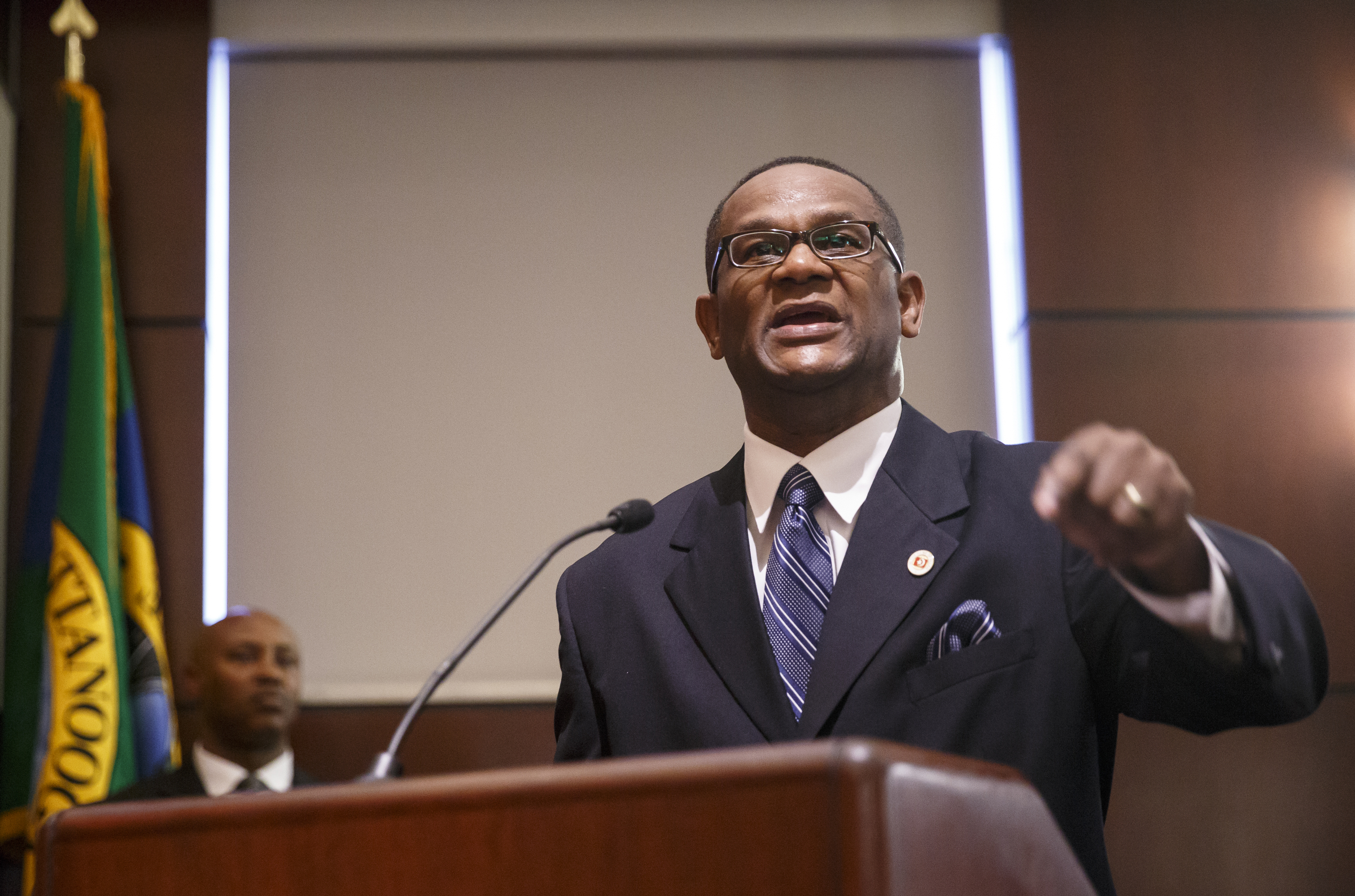Here's hoping Chattanooga - both its city officials and its city residents - have more civil discourse and thoughtful give-and take about our two unequal Chattanoogas like what we saw Tuesday when the City Council allowed a special presentation by Kevin Muhammad titled "The People's State-of-the-City Address.
Two Chattanoogas? Yes, the well-off one that revels in trendy new bike lanes, downtown condo construction and a much touted "innovation zone" vs. the 27 percent of Chattanooga that struggles below the poverty line.
The poor Chattanooga - with a per-capita poor population nearly double that of national average - is made up largely of families headed by women. And contrary to popular urban myth, our growing poverty and income gap is not generational here. In fact, it's rather new.
Muhammad, a local Nation of Islam leader, recited a litany of statistics that these pages have reported before and that Chattanooga often is told - though rarely in one sitting:
Between 2000 and 2010, Chattanooga saw a 75.2 percent increase of people in poverty in the urban core and a 52 percent increase in the suburbs. What's more, in the years between 2007 and 2009, Chattanooga had the second highest rise in poverty in the nation. The Brookings Institution says we're 12th in nation for economic inequality, and Chattanooga has the 7th lowest pay in U.S. for someone with a bachelor's degree. Volkswagen received $800 million in public subsidies from our city and county and state, but its workers - our workers - have the lowest-paying wage of any autoworkers in America.
We're spending a fortune on bicycle lanes but only 23 percent of Chattanoogans live near a mass transit stop. The average for the nation's top 100 metro areas is 69 percent. And though we're the home of the Ironman competition and a major cycling championship, our city is one of the least healthy in America.
"Time will not permit us to deal with all the issues ," Muhammad told the council, as he paused to take a breath. "But we're here to tell you the story of those who still live in dark ages while our city prospers from the Renaissance."
Muhammad couched his address as a rebuttal to Chattanooga Mayor Andy Berke's "State-of-the-City" address last month, in which Berke said that in the last three years our city unemployment rate dropped 2.5 percent.
On Tuesday, Muhammad countered: "You can't tell that to the people of Alton Park whose unemployment rate is 35 percent and who receive wages of $18,000 a year. Or to the people of the West Side where 100 percent pay rent and 30 percent are unemployed. Or the people of East Lake where 28 percent are unemployed and earn $20,000 a year."
Muhammad implored the council: "You can no long rubber stamp the mayor's budget. The current budget does not address the growing need. We cannot police our way out of this."
Instead of spending $1 million for street surveillance cameras, he suggests using $1 million to give summer jobs to impoverished youth. And how about a program to help those returning from prison to get back on their feet with jobs so they won't have to return to crime to eat? River City Co. could give $1 million for the "People's Youth Institute," along with Volkswagen and other large companies that have gotten generous tax breaks. Today 60 companies have received such tax breaks and $15 million in taxes went uncollected because of those tax breaks.
He asked the people in the packed audience to stand if they agreed with him, and as they did, he said: "We the people love our city despite its many flaws."
In fairness, these problems are not all black and white - no pun intended, though racial discrimination and tension certainly play a not-too-small role in the culture of our local disconnect.
The tax breaks are designed, in theory, to help bring (or keep) jobs here. And the city's Violence Reduction Initiative that the cameras would enhance exists because police and community pleas for witness testimony goes unheard in neighborhoods where gang violence is common. The growing poverty goes hand-in-hand with the consistent downward slide of our schools: 60 percent of our third-graders can't read at grade level, meaning they can't learn well in later grades. Local employers have said they have 15,000 jobs they can't fill with city residents because too few are educationally qualified.
If these problems were easy to fix, we wouldn't be talking about them.
But finally - thank goodness - we are talking about them. On Tuesday, the City Council sat quietly behind its dais to listen for a half hour to Muhammad and then another half hour to others. Normally, the public may address the council in sparse limits of three minutes. You know - listening to the people is such a bother.
As the session ended, Councilman Yusuf Hakeem, who with Councilman Ken Smith asked that Muhammad be allowed the special time, said: "Consciously or subconsciously, we will be looking at the budget in a manner that we have not. Maybe."
Yes, some council eyes rolled at a suggestion that city leaders "must atone for their sins." (It's the same kind of let-me-close-your-ears argument that railing about 'welfare queens' might have at an Urban League meeting.)
Yet even as voices occasionally rose, no one shouted past another.
It was a good start. And it should happen more often.

